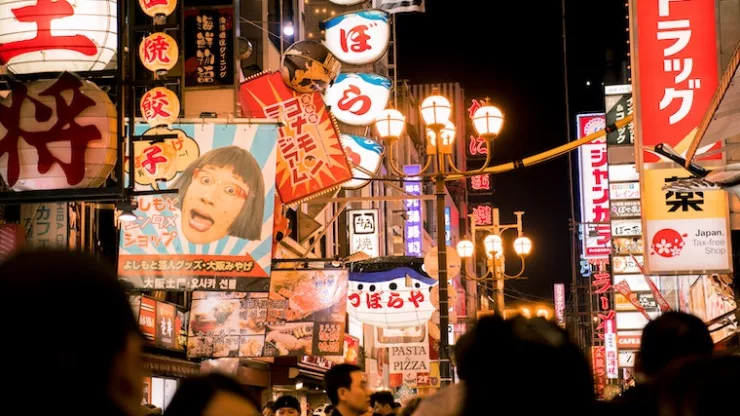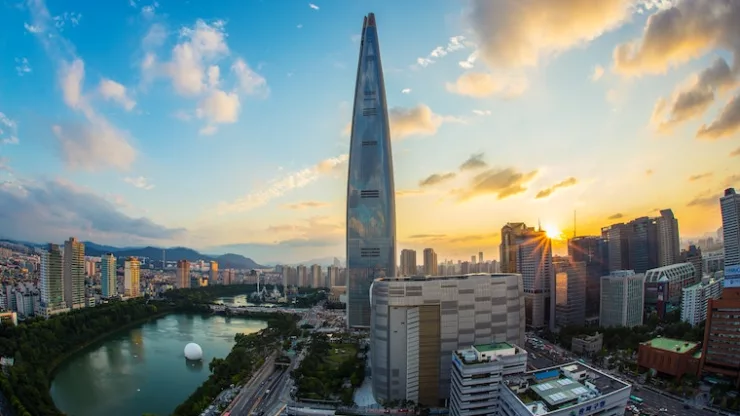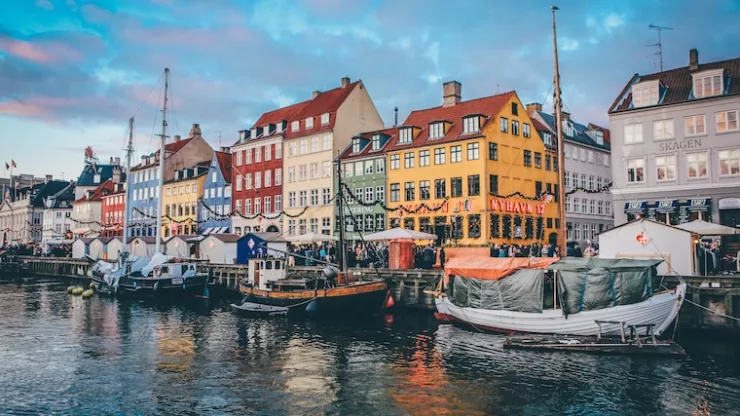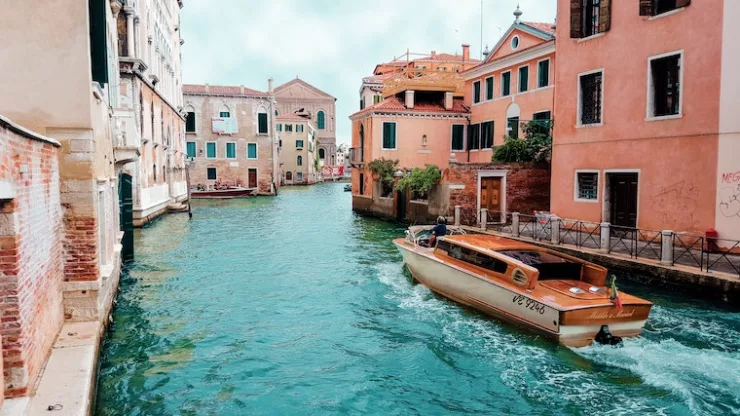Quick Facts
Capital: Tokyo.
Population: 126.15 million.
Language: Japanese.
Currency: Japanese yen (¥).
GDP: $5.1 trillion. (source)
Japan is an island country located in East Asia, with a population of approximately 126.15 million people. It consists of 6,852 islands, with the four largest islands of Honshu, Hokkaido, Kyushu, and Shikoku accounting for more than 95% of the total land area.
With its unique culture, cutting-edge technology, and breathtaking landscapes, Japan has become a popular destination for travelers around the world.
In this article, we will explore some interesting facts about Japan that you may not have known before.
Facts About Japan
- Cherry Blossoms: Cherry blossoms are an essential part of Japanese culture, and the country is famous for its stunning cherry blossom festivals. These festivals take place in early spring when the cherry blossoms bloom, and people from all over the world come to Japan to witness the spectacle.
- Punctuality: Japanese trains are famous for their punctuality, and delays of even a few seconds are considered a serious problem. In fact, Japanese train operators have been known to apologize for trains departing as little as 20 seconds late!
- Bowls of rice: In Japan, it is customary to leave a small amount of rice in your bowl at the end of a meal. This is to show appreciation to the person who served you and to show that you are satisfied.
- Longevity: Japan has one of the highest life expectancies in the world, with an average life expectancy of 84 years. This is due to a combination of factors, including a healthy diet, an active lifestyle, and an excellent healthcare system.
- Manga and Anime: Japan is known for its vibrant manga and anime culture, and some of the world’s most popular anime and manga series, such as Naruto and Dragon Ball, originated in Japan.
- Unusual Flavors: Japan is famous for its unusual and sometimes bizarre flavors of food and drink. Some popular examples include wasabi-flavored Kit Kats, soy sauce-flavored ice cream, and green tea-flavored Coca-Cola.
- Mount Fuji: Mount Fuji is Japan’s highest mountain and one of its most iconic landmarks. It is also an active volcano and is considered one of Japan’s three holy mountains.
- Onsen: Onsen, or hot springs, are a popular attraction in Japan. There are over 3,000 onsens in Japan, and they are believed to have healing properties.
- Bullet Trains: Japan’s bullet trains, or Shinkansen, are some of the fastest trains in the world, with speeds of up to 320 km/h (200 mph).
- Manners: Japanese culture places a strong emphasis on manners and etiquette. For example, it is customary to remove your shoes when entering someone’s home, and it is considered impolite to blow your nose in public.
- Sumo Wrestling: Sumo wrestling is Japan’s national sport and has a history dating back over a thousand years. Sumo wrestlers are highly respected in Japanese culture and are considered to be living embodiments of traditional Japanese values.
- Capsule Hotels: Capsule hotels are a unique accommodation option in Japan, offering small capsule-like sleeping spaces for guests. They are often used by businessmen who need a place to sleep after working late.
- Karaoke: Karaoke is a popular activity in Japan, and it is common for people to rent private karaoke rooms with friends or colleagues. Many karaoke bars in Japan also offer a wide selection of songs in multiple languages, making it a fun and inclusive activity for everyone.
- Bowing: Bowing is a traditional form of greeting in Japan, and it is a way to show respect and gratitude. The depth and duration of the bow depend on the social status and relationship between the people involved.
- Shintoism: Shintoism is a traditional religion in Japan that dates back over 2,000 years. It involves the worship of various gods and spirits, and it is deeply ingrained in Japanese culture and society.
- Robotics: Japan is at the forefront of robotics technology, and many of the world’s most advanced robots are developed and manufactured in Japan. Robotics is an important industry in Japan and is used in many different fields, including healthcare, manufacturing, and entertainment.
- Public Transportation: Japan has one of the most efficient and extensive public transportation systems in the world. In addition to the famous bullet trains, Japan has an extensive network of buses, subways, and local trains that make it easy to get around.
Conclusion
Japan is a fascinating country with a rich history and culture.
From its beautiful cherry blossoms and iconic landmarks like Mount Fuji to its unique food and vibrant manga and anime culture, there is always something new and exciting to discover in Japan.
Whether you are planning a trip to Japan or simply interested in learning more about this fascinating country, we hope that these facts have given you a deeper insight into the Land of the Rising Sun.
FAQ
What is the national dish of Japan?
Japan has many traditional dishes, but one of the most well-known is sushi.
Sushi is a type of Japanese cuisine that consists of vinegared rice, often combined with raw fish or other seafood.
What is the meaning of the Japanese flag?
The Japanese flag, also known as the Hinomaru, consists of a red circle on a white background.
The red circle represents the sun, which has been an important symbol in Japanese culture for thousands of years.
What is the most popular sport in Japan?
Baseball is the most popular sport in Japan, followed closely by soccer. Sumo wrestling is also a popular traditional sport in Japan.
What is the best time of year to visit Japan?
The best time to visit Japan depends on what you want to see and do.
Spring (March to May) is a popular time to visit for the cherry blossoms, while autumn (September to November) is a great time to see the fall foliage.
Summer (June to August) can be hot and humid, but it is also a great time to visit the beaches and enjoy summer festivals.
Is Japan an expensive country to visit?
Japan can be an expensive country to visit, especially in major cities like Tokyo and Osaka.
However, there are ways to save money, such as staying in budget accommodations, using public transportation, and eating at local restaurants.
What are some popular tourist destinations in Japan?
Some of the most popular tourist destinations in Japan include Tokyo, Kyoto, Hiroshima, and Mount Fuji.
Tokyo is a vibrant city with many attractions, including museums, temples, and shopping districts.
Kyoto is famous for its traditional architecture and beautiful gardens, while Hiroshima is a historical city that is home to the Hiroshima Peace Memorial Park.
Mount Fuji is a must-see for nature lovers, and it is possible to hike to the summit during the summer months.
What is the Japanese tea ceremony?
The Japanese tea ceremony, or Chanoyu, is a traditional ritual that involves the preparation and serving of tea.
The ceremony is a way to appreciate the beauty of tea and to promote harmony and tranquility.
The tea ceremony is often held in a special room, called a Chashitsu, that is designed for this purpose.
What is the Japanese work culture like?
The Japanese work culture is known for its long hours and strict hierarchy.
Many employees work overtime, and it is not uncommon for workers to stay in the office until late at night.
However, the work culture also places a strong emphasis on teamwork and collaboration, and it is common for employees to socialize with their colleagues outside of work.
What is the Japanese school system like?
The Japanese school system is known for its rigor and high academic standards.
Students attend school for six days a week and often participate in after-school clubs and activities.
The school system also places a strong emphasis on discipline and respect, and students are expected to follow strict rules and regulations.
What is the traditional Japanese attire?
The traditional Japanese attire for women is the kimono, which is a long, flowing robe that is often made of silk or other fine materials.
Men traditionally wear a kimono or a hakama, which is a type of pleated skirt that is worn over trousers.

I am a fun fact enthusiast and creator of Facts On Tap.
I love to share my knowledge and curiosity with readers and inspire them to learn something new every day.
When I’m not writing, I enjoy traveling, reading, and playing trivia games with my friends.




